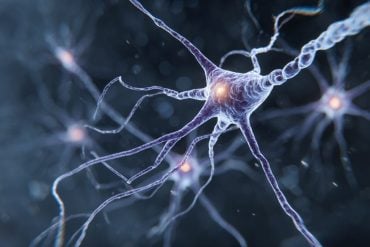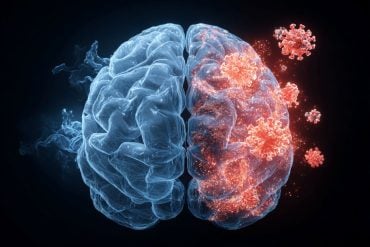Summary: A new study reveals that low omega-3 fatty acid intake is associated with increased ADHD symptoms among Palestinian adolescents. Researchers found that socioeconomic disparities—particularly those limiting access to omega-3–rich foods like fish and nuts—intensify ADHD-related behavioral and attention difficulties.
Even after accounting for income and education, omega-3 deficiency remained a significant predictor of symptom severity. The findings highlight nutrition as a critical, low-cost public health strategy for managing ADHD in developing and conflict-affected regions.
Key Facts
- Nutritional Link: Adolescents with low omega-3 intake showed higher ADHD symptom scores.
- Socioeconomic Impact: Financial and educational disparities influenced dietary quality and ADHD risk.
- Public Health Value: School nutrition programs may help reduce ADHD symptoms affordably.
Source: De Gruyter
Attention-deficit/hyperactivity disorder (ADHD) symptoms are influenced by socioeconomic factors in regions affected by conflict and resource limitations, a new study focusing on non-Western populations has found.
The study also revealed that lower omega-3 fatty acid intake is significantly associated with higher ADHD symptom scores in Palestinian adolescents, reflecting findings from other research conducted in Western countries.

ADHD likely affects more than 5% of children and early adolescents worldwide. Over several decades, neurologists have identified a strong link between ADHD symptoms and deficits in omega-3, which is essential for brain growth and overall cognitive functioning. As omega-3 can’t be produced by the body, it must be obtained through a diet rich in foods such as fish, nuts and seeds.
Most previous studies into the association between ADHD and omega-3 intake have focused on Western populations, with limited evidence from developing regions. They have also largely focused on younger children rather than early adolescents, whose dietary habits and behavioral patterns are still rapidly forming.
This new research, published in De Gruyter Brill’s International Journal of Adolescent Medicine and Health, aims to address this gap.
Professor Omar Almahmoud and colleagues at Birzeit University, Ramallah, Palestine, conducted a survey of 211 early adolescents in Palestine, including 38 with ADHD. Participants’ omega-3 intake was assessed using a culturally-adapted Food Frequency Questionnaire, reflecting dietary patterns typical of Palestinian families.
The researchers also gathered data on socioeconomic factors, including participants’ age, gender, parental education and employment, and family income. This approach enabled them to explore the association within a culturally distinct and nutritionally under-researched population.
Even when these factors were taken into account, the survey’s results broadly reflected the findings of previous studies.
“Lower omega-3 fatty acid intake was significantly associated with higher ADHD symptom scores,” Almahmoud said.
“Adolescents with insufficient omega-3 consumption exhibited more attention-related and behavioural difficulties compared to their peers with adequate intake.”
The study also identified a key link between ADHD symptoms and socioeconomic disparities, which directly affected participants’ omega-3 intake.
“These results highlight the importance of balanced nutrition – particularly omega-3 fatty acids – in supporting cognitive and behavioural health during early adolescence,” Almahmoud said.
Taken together, the findings suggest that public health interventions to improve omega-3 intake could offer a low-cost strategy to mitigate ADHD symptoms in school-aged children, both in Palestine and in other developing, conflict-affected regions.
Rather than relying solely on challenging or potentially controversial pharmacological treatments, such efforts could take the form of school-based nutrition programs, caregiver education and subsidies for omega-3–rich foods.
Key Questions Answered:
A: Lower omega-3 intake was strongly linked to higher ADHD symptom scores, suggesting this essential nutrient supports cognitive and behavioral regulation.
A: Adolescents from lower-income or conflict-affected regions were more likely to have poor omega-3 intake, worsening ADHD symptoms.
A: It’s one of the first to examine ADHD and nutrition in a non-Western, conflict-affected population, showing global relevance for diet-based mental health interventions.
About this diet and ADHD research news
Author: Billy Sawyers
Source: De Gruyter
Contact: Billy Sawyers – De Gruyter
Image: The image is credited to Neuroscience News
Original Research: Open access.
“Association between omega-3 fatty acid intake and ADHD symptoms among early adolescents aged 10–12 years: a cross-sectional study in Palestine” by Omar Almahmoud et al. International Journal of Adolescent Medicine and Health
Abstract
Association between omega-3 fatty acid intake and ADHD symptoms among early adolescents aged 10–12 years: a cross-sectional study in Palestine
Objectives
Deficits in omega-3 fatty acids, particularly eicosapentaenoic acid (EPA) and docosahexaenoic acid (DHA), have been implicated in attention-deficit/hyperactivity disorder (ADHD). These fatty acids are essential for neurodevelopment and cognitive functioning during childhood and early adolescence. The purpose of this study was to examine the association between ADHD symptoms and dietary omega-3 intake among Palestinian early adolescents aged 10–12 years, with particular attention to socioeconomic determinants.
Methods
A cross-sectional study was conducted with 211 participants (38 with ADHD, 173 without ADHD). Parents completed a culturally adapted Food Frequency Questionnaire (FFQ) to estimate intake of omega-3–rich foods (e.g., fish, nuts, seeds). ADHD symptoms were assessed by subtype, and socioeconomic factors were recorded. Group differences were tested, and logistic regression evaluated associations between omega-3 intake and ADHD symptoms.
Results
Children with ADHD reported significantly lower omega-3 intake (mean=0.60 ± 0.68) than their peers without ADHD (mean=0.89 ± 0.72; p<0.001). The hyperactive/impulsive subtype had the lowest intake (mean=0.42 ± 0.62). Logistic regression indicated that each unit increase in omega-3 intake was associated with a 45 % reduction in hyperactive/impulsive symptoms (OR=0.55, p=0.03). Adolescents’ age, gender, parental education, parental employment, and family income were significantly associated with children’s omega-3 intake (p<0.05).
Conclusions
Lower dietary omega-3 intake is associated with more severe ADHD symptoms, particularly in the hyperactive/impulsive subtype. Socioeconomic disparities further exacerbate nutritional deficiencies, with potential consequences for neurodevelopment and behavioral health.
Public health interventions—such as school-based nutrition programs, caregiver education, and subsidies for omega-3–rich foods—may support mental health and cognitive development among children and early adolescents in resource-limited and conflict-affected settings.







